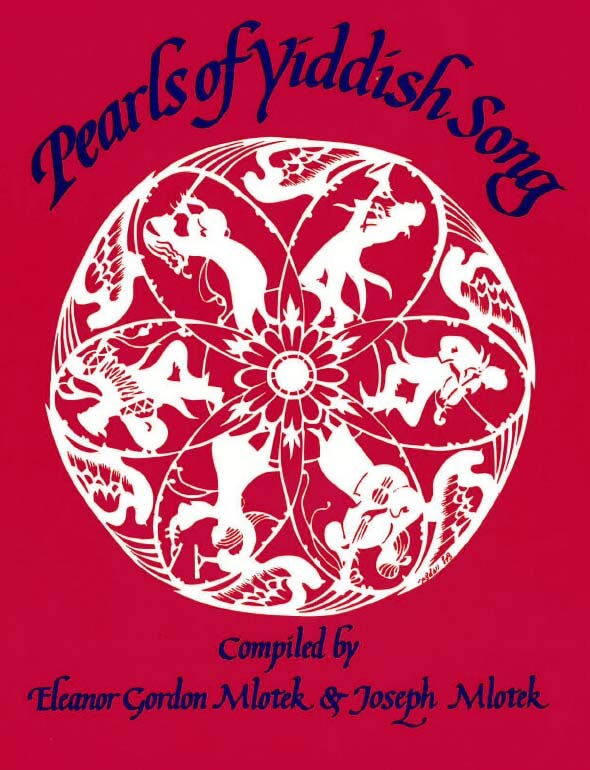Folklorized version of a poem by Joseph Rolnick (1879-1955). Originally published in the magazine Di yugnt, c. 1907; music by Bertha Kling (1886-1979). Sung by compiler Yosl Mlotek in Warsaw in the 1930’s. Polish Jews would pause before the last line and then shout: “Yo, er iz gekumen!”
The original contains a fourth stanza which is not included in the folklorized versions: “Shtundn hot di nakht gor fil,/ Eyns der tsveyter triber,/ Eyne iz a fraye nor,/ Ven es kumt mayn liber” (The night has many hours, each one sadder than the next; only one is joyous, when my beloved comes).

I lie down in bed
and put out the light,
today, he will come to me –
the one I treasure.
Trains pass by twice a day,
one comes in the evening;
I hear the ringing: ding-ding-dong –
Yes, he is close now.
I hear walking, knocking on the door,
someone calling me by name;
I run down barefoot –
Yes! He has come!
Leyg ikh mir in bet arayn
Un lesh mir oys dos fayer,
Kumen vet er haynt tsu mir —
Der vos iz mir tayer.
Banen loyfn tsvey a tog,
Eyne kumt in ovnt;
Kh’her dos klingen: glin-glin-glon —
Yo, er iz shoyn noent.
lkh her men geyt, men klapt in tir,
Men ruft mikh on baym nomen;
Ikh loyf arop a borvese —
Yo! er iz gekumen!
לײג איך מיר אין בעט אַרײַן
און לעש מיר אױס דאָס פֿײַער,
קומען װעט ער הײַנט צו מיר —
דער װאָס איז מיר טײַער.
באַנען לױפֿן צװײ אַ טאָג,
אײנע קומט אין אָװנטן;
כ’הער דאָס קלינגען: גלין־גלין־גלאָן —
יאָ, ער איז שױן נאָענט.
איך הער מען גײט, מען קלאַפּט אין טיר,
מען רופֿט מיך אָן בײַם נאָמען;
איך לױף אַראָפּ אַ באָרװעסע —
יאָ! ער איז געקומען!
Song Title: Leyg Ikh Mir In Bet Arayn

First published in 1988 as Pearls of Yiddish Song: Favorite Folk, Art and Theatre Songs, this anthology contains 115 songs. Some material had never been published, while others, included in rare song collections or sheet music, were largely inaccessible. The songs presented reflect Jewish life in Eastern Europe and the United States and depict childhood, love, family celebrations, poverty, work and struggle. There are also songs from the Hasidic and Maskilic movements, songs of Zion and of America, as well as songs from the Yiddish theater.
The title of this anthology derives from the weekly two-page feature column “Pearls of Yiddish Poetry,” which the compilers Yosl and Chana Mlotek initiated in 1970 in the Yiddish newspaper Der Forvertz (the Yiddish Daily Forward). Hundreds of readers from around the world — including authors, composers, singers, actors — became co-participants in this collective folk project and recalled melodies, lines, fragments, stanzas and their variants of songs, poems, and plays which they had heard in their youth. At first, readers sent in only written material. Later, they also taped songs on cassettes, many of whose melodies had, until then, never been recorded. They also identified and supplied missing information regarding lyricists, poets, and composers and described the circumstances surrounding the songs’ origins, their dissemination, diffusion and impact.